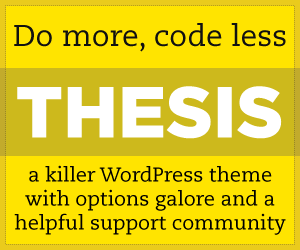 Beware of agents, “book doctors,” ghostwriters, and vanity press publishers who prey on the hopes and dreams of aspiring writers. It is estimated that between 80-90% of all people want to write a book. Most of these would-be authors won’t put forth the effort to finish a book, and only a small percentage of those who do will produce something that’s really marketable. Everyone in between – including those eager young novices who might do better, but lack the confidence and patience to see it through – represents a huge potential market for the unscrupulous entrepreneur. The unsavory predators quickly figure out how to employ a deadly combination of flattery and sales technique to bilk starry eyed authors out their hard-earned savings.
Beware of agents, “book doctors,” ghostwriters, and vanity press publishers who prey on the hopes and dreams of aspiring writers. It is estimated that between 80-90% of all people want to write a book. Most of these would-be authors won’t put forth the effort to finish a book, and only a small percentage of those who do will produce something that’s really marketable. Everyone in between – including those eager young novices who might do better, but lack the confidence and patience to see it through – represents a huge potential market for the unscrupulous entrepreneur. The unsavory predators quickly figure out how to employ a deadly combination of flattery and sales technique to bilk starry eyed authors out their hard-earned savings.
If it sounds too good to be true, it probably is. Imagine: You’ve just finished writing your first book. You’ve heard how hard it is to break into publishing; you’ve read tons of market listings that say “no unsolicited submissions, please!” This notion of “getting published” seems as far-fetched, some days, as winning the lottery. In fact, according to your inner critic, you might have a better shot at winning the lottery. You decide that it might be worth your while to hire an agent, so you begin searching for one who is willing to represent new writers and eager for fresh new talent to promote.
Here’s where you begin to make your first mistake – deep in the back of your mind, you crave acceptance. You want your manuscript to be loved unconditionally. You do not want to see it with the jaded eye of a bean counter, analyzing its sales potential in today’s literary marketplace. You are ripe for the picking.
A successful, busy agent may well turn you down if he or she feels that your work isn’t marketable, or if he or she doesn’t have the time to market it properly. Another agent may love that same manuscript, may be hungry for new clients, and may have contacts in different markets. A different agent may see something in your work that says “This is the next bestseller! I have to have a piece of this!” That’s a business reality. Of course the best agents can afford to be picky – imagine being Stephen King’s agent! (I wish.) Now, imagine being Stephen King’s first agent, back before he was earning scads of money. What you need is a visionary, not a scam artist.
If an agent calls you and tells you how promising your work is and how eager he is to represent you, of course you’re inclined to listen. That is exactly what you’ve been hoping to hear. But you need to really listen. Do the compliments come with strings attached?
Some agents will ask for a retainer fee, up-front marketing fees, reading fees, or other fees from the writers they purport to represent. Beware! A reputable agent makes money from selling your work, period. You may be expected to pay some or all of the reasonable costs of marketing your work: phone calls, photocopies of your manuscript, and postage, not glossy brochures and nationwide ad campaigns.
For some authors, getting sucked in by a scam artist is a crushing blow, both emotionally and financially. If you have been scammed, realize that the scam is a business scheme – it doesn’t necessarily mean that their compliments on your writing were mere flattery and lies! One writer said, “What I guess disappoints me the most is that I knew better. I’ve done my research and I know about these scams. But at the time, when emotions are high and you think that FINALLY you may have a chance and a door is opening for you…. You said it though: They prey on aspirations and dreams.”
Intellectually, you know. Emotionally… you want to believe. That’s why vanity press operations are so hurtful. They’re so good at the flattery. When a talented poet receives their marketing lit, it sounds great. When that talented poet learns that the guy who submitted something his cat typed up got the same letters, it hurts. It doesn’t suddenly mean that the talented poet is on a par with the cat, but that’s how it feels. The truth is that these people prey on everyone’s hopes and dreams; they don’t discriminate. What a feather in their cap it is to sucker in someone who actually has some talent or ability! These folks would dearly love to get hold of a naive John Grisham to lend them an air of legitimacy. Persistence will pay off, in the end. Keep the faith.
Before doing business with an agent, editor, or publisher, check here to learn if other authors have had good or bad experiences in dealing with them:
http://www.anotherealm.com/prededitors/pubagent.htm
http://www.anotherealm.com/prededitors/
Holly Jahangiri is a professional writer with over twenty years’ experience in technical writing, freelancing, fiction, poetry, and editing. She blogs at It’s All a Matter of Perspective: Mine (http://jahangiri.us/news)
![Reblog this post [with Zemanta]](http://img.zemanta.com/reblog_e.png?x-id=af5f514b-fc38-4ded-8fad-60677313a40f)
